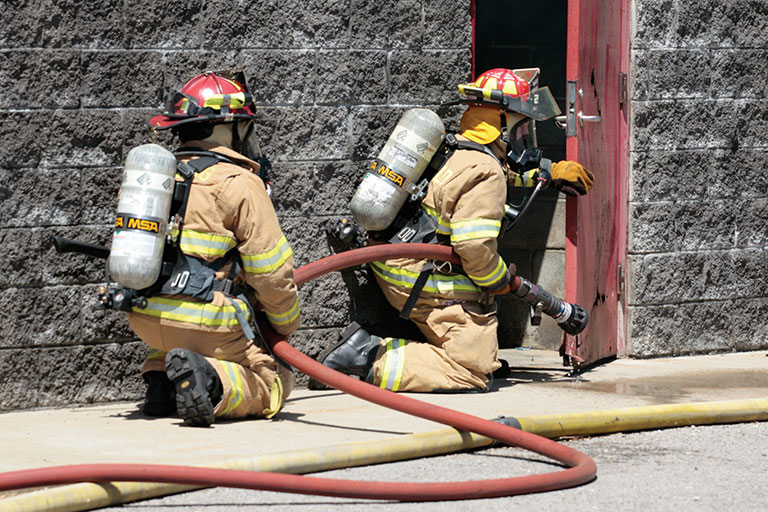Stop, drop, roll and get ready to meet the challenges of being an emergency responder.
What is Fire/Rescue Science Technology?
As emergency first responders, fire/rescue workers are skilled in handling pressure situations. The program comprised knowledge and skills in fire prevention and suppression, technical rescue, hazardous materials, emergency medical care, and leadership. Practical and hands-on training.

Getting Started
What are my degree, diploma, and certificate options?
How Do I Pay For This?
Worry no more. With the lowest tuition in Kentucky, financial aid options, and a helping hand to guide you through the application process, SKYCTC has you covered. SKYCTC will help you reach your goals at a price that won't break the bank.
What Else Do I Need to Know?
Accreditation
The program is accredited by the International Fire Service Accreditation Congress.
Length of Program
You can earn an associate in applied science degree in two years if you maintain full-time status.
This information should not be considered a substitute for the KCTCS Catalog. You should always choose classes in collaboration with your faculty advisor to ensure that you meet all degree requirements.

